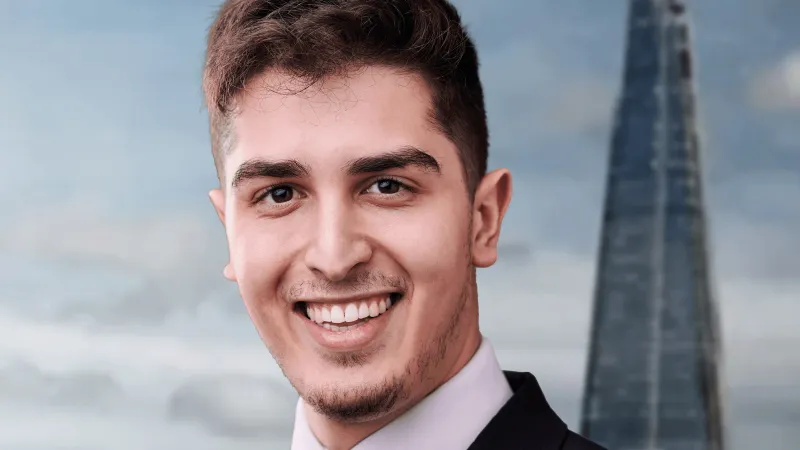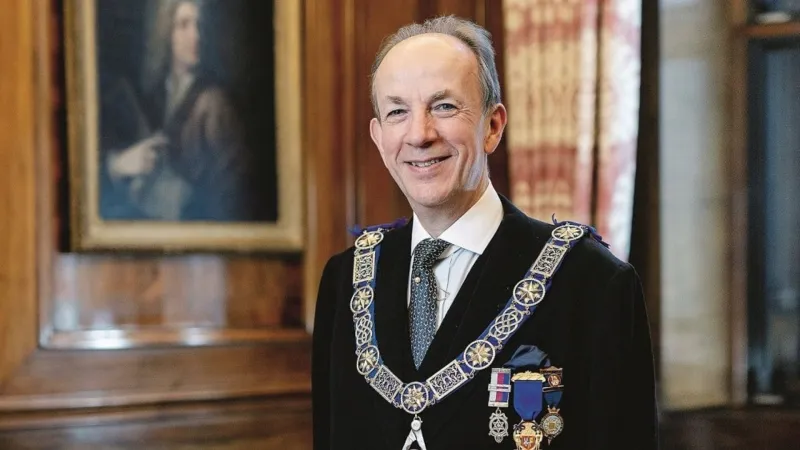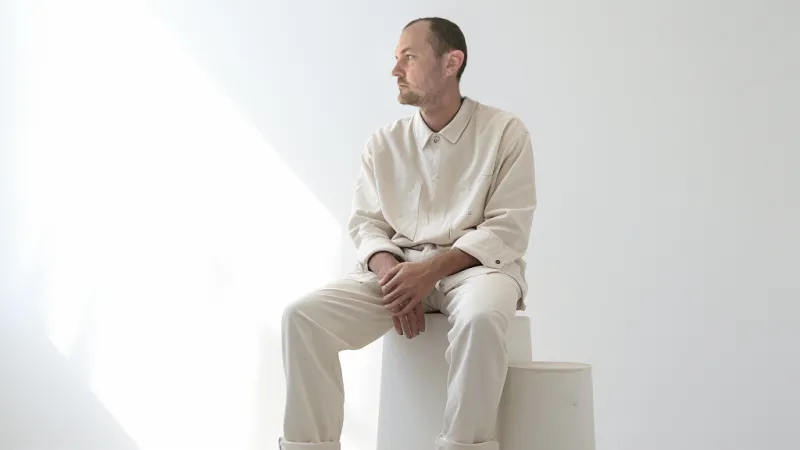Thanks to funding from Freemasons, Bowel Research UK can fund the crucial research of three PHD students.
CEO Lynn Dunne tells us about more about the charity's quest to defeat bowel diseases.
Like many people who have reached the age of 60, one of Lynn Dunne’s less glamorous birthday presents was a home test for her bowel cancer screening. But unwelcome as it seemed, that test turned out to be one of the most important gifts she has ever received. Recently retired after working as an NHS nurse for more than 40 years, Dunne completed the test and didn’t give it a second thought until she received a call inviting her for a colonoscopy, where a stage three tumour was discovered.
This was the beginning of a chain of events that has ultimately led to Dunne’s appointment as interim CEO of Bowel Research UK, precisely one year after having surgery to remove half her colon. Among the 53 research projects supported by the charity are three PhDs funded by the Masonic Charitable Foundation (MCF, the Freemasons’ charity).
‘W hat I learned through all of this – and it’s something that fits with the Masonic approach – is I was forced to contemplate my own death,’ she says. ‘There’s nothing quite like a cancer diagnosis for that. You can tie yourself in knots about it, but I remember having a moment towards the end of the treatment when I realised that we will all die – hopefully not for a long time – and before I do I want to make every minute count and give something back. That is what I decided to do. W hen I was offered this job, I decided to donate my salary back into our research fund. I am doing this pro bono, giving back exactly as I said I would.’
Bowel cancer is one of the biggest killers in the UK and some patients, like Dunne, can have no obvious symptoms as the disease develops, emphasising the life-saving importance of the NHS screening programme. That requires the public to get over any residual stigma about the nature of the screening. ‘I would not have been diagnosed if I hadn’t received my 60th birthday present from the NHS,’ she says. ‘We want to reduce the embarrassment and stigma about bowels because these tests are really important. It might be a little difficult, that idea of putting a sample of your own poo in a box, but my goodness me, I am glad I did!’
The statistics are stark. More than 16,000 people die each year because of bowel cancer, while at least one million experience other bowel-related conditions including inflammatory disease, hernias, fistulas, Crohn’s disease, rectal and anal cancer, and incontinence. Bowel cancer is tied with lung cancer as the most common form of cancer in the UK behind breast and prostate, afflicting one in every 15 men and one in every 18 women. But it’s second when it comes to deaths from cancer. Reducing that number by simply making people aware of the importance of screening is a small part of Dunne’s job, which is otherwise dedicated to raising and allocating funds for research.
As interim CEO and a cancer survivor, Dunne can bring her own experiences with the disease into conversations she has with researchers and surgeons. She first encountered many of these specialists earlier in her career when she worked at London’s St Mark’s Hospital, which specialises in bowel disease. Now, she participates in a Bowel Research UK initiative called PaRT (People and Research Together), which utilises the charity’s contacts to bring researchers into direct contact with patients and their families. It’s an approach that the NHS and the National Institute for Health and Care Excellence (NICE) believes should be expanded throughout healthcare sectors.
The main focus of the charity’s attention is funding. Research presents the best chance to defeat bowel disease, but it is chronically under-funded. The organisation funds proof-of-principle grants up to £50,000 focusing on early-stage funding, as well as PhDs up to £75,000. It strives to support future leaders – those researchers who will go on to become experts in the field.
‘These are research projects that take place all over the country,’ says Dunne. ‘How much we distribute depends on how much we attract, so we fundraise then have a grants call. This is a challenging funding environment, which is why we are so grateful to people like the Freemasons. I am in regular contact with the MCF and keep them updated with the research projects so everybody knows what is happening.’
As the population ages and demand on healthcare and social services escalates, research into treatment and prevention is more important than ever. Freemasonry has a proud history of supporting medical research projects and, since 2018, the MCF has continued this commitment through a £1m-per-year fund for PhD studentships.
The fund aims to support research that improves detection, treatment and services for a range of medical conditions and Bowel Research UK was one of the first charities to benefit from this programme, receiving £225,000 from the MCF to fund three PhD studentships for five years.
‘Our funding for PhD students through leading medical research charities such as Bowel Research UK demonstrates our commitment to investing in the next generation of medical researchers,’ explains Les Hutchinson, Chief Executive of the MCF. ‘By nurturing and funding the talent of today’s young scientists, Freemasonry is supporting the research breakthroughs of tomorrow.’
Dunne’s own experience is a testament to the strides in treatment being taken by specialists, thanks in part to the research funded by Bowel Research UK. Her diagnosis came at a challenging time for the NHS, just as the Covid wave of late 2020 was getting underway, but her surgery went ahead well within the approved timescale. Before the operation she was advised about expected outcomes, but also warned about what could happen – a scenario that would result in her having temporary ileostomy, with the bowel brought to the surface of the skin and requiring use of an ostomy bag.
That is indeed what happened, with Dunne learning to live with the bag for 10 months, while also undergoing chemotherapy. In September 2021 the bag was removed and in December 2021 she was given the all-clear.
That was a difficult experience and while Dunne doesn’t sugar-coat the challenges, she does emphasise how it can be made easier. Ahead of her operation, she focused on improving her general health and stamina to aid a quicker recovery – and as a result she was sent home six days after the operation. She also took care of her diet while using the bag – small things that make a difference. And, of course, the experience led to that period of self-reflection, ultimately bringing her from retirement back into her life’s work of healthcare.
‘It created the opportunity for life evaluation,’ she says. ‘W hat mattered to me was my friends and family, and making a positive difference. I had no plan how I would actually do that, but then in December 2021 this opportunity came up and I was invited to apply. I was honoured to be offered the position. I’d like to think my personal experiences give me a connection, having been through this and understanding how important the work of the charity is in terms of the research it funds, it really makes me want to succeed. That’s what makes us so grateful to people like the Freemasons. We really rely on them for support and they are extremely generous – and that is vital.’
Three PhD candidates funded by Freemasons
Lucy Wiseman, University of Hull
‘We know that patients suffer with low oxygen levels in their tumours and this can make them resistant to radiotherapy, which is the first strategy for treating cancer. There is a specific protein called ADAM10 and we know that in the lab it effects growth of colorectal cancer cells. We are trying to define whether inhibiting this protein can make colorectal cancer cells more sensitive to radiotherapy even though there is low oxygen. We’re trying to understand how ADAM10 affects growth and then whether treating colorectal cells with an ADAM10 inhibitor will damage cells more through radiotherapy than with our control sample. Throughout the PhD, we seek to publish any significant data. I feel I’m working on something useful because my research builds on previous work completed in the lab, which would not have been possible without the support of BRUK and the Masons.’

University of Hull
Declan Sculthorpe, University of Nottingham
‘My main area of research is colorectal cancer. It spreads through two systems: the lymphatic spread through the lymph nodes, or the vascular system, which is through the blood stream. We are looking at new potential markers that could suggest what is causing the cancer to spread from an initial site to other areas of the body. These could be used for earlier detection, so if somebody has a routine biopsy, we might run a test that could detect an early indicator of spread. It’s about understanding the spread throughout the body, what’s causing that and how we can better identify the way in which cancer is spread. There are thousands of genes that could cause the spread, but it’s about narrowing it down logically.
‘I was a technician at the University of Nottingham and saw a funding offer from Bowel Research UK. There’s really no other way to do a PhD – you need to pay your living costs and what you need equipment-wise. It was a surprise when I discovered it was funded by the Freemasons, but I know they do a lot of charity work. I am extremely grateful because otherwise I couldn’t do what I am doing now. That support is hugely appreciated by everybody who has their studentship funded by the Freemasons or other charities.’

University of Nottingham
Beverley Rodgers, Queen Mary University of London
‘There is a population of cells called resident memory T-cells that reside permanently within organs. There are treatments for inflammatory bowel disease (IBD) that aren’t effective in around a third of patients and that might be due to this. My research is focused on trying to identify how they affect IBDs. Some treatments focus on preventing cells trafficking into the gut, but they have limited effect over time and don’t help some people at all – we think that might be because of this subset of cells in the intestine. Blocking new ones coming in isn’t effective because of this population already living there. If we solve that we can identify treatments that work more effectively.
‘I began my research in September 2019 and will finish this December. Funding partners like the MCF and Bowel Research UK are essential for our research – it couldn’t be done without them.’

Queen Mary University of London




